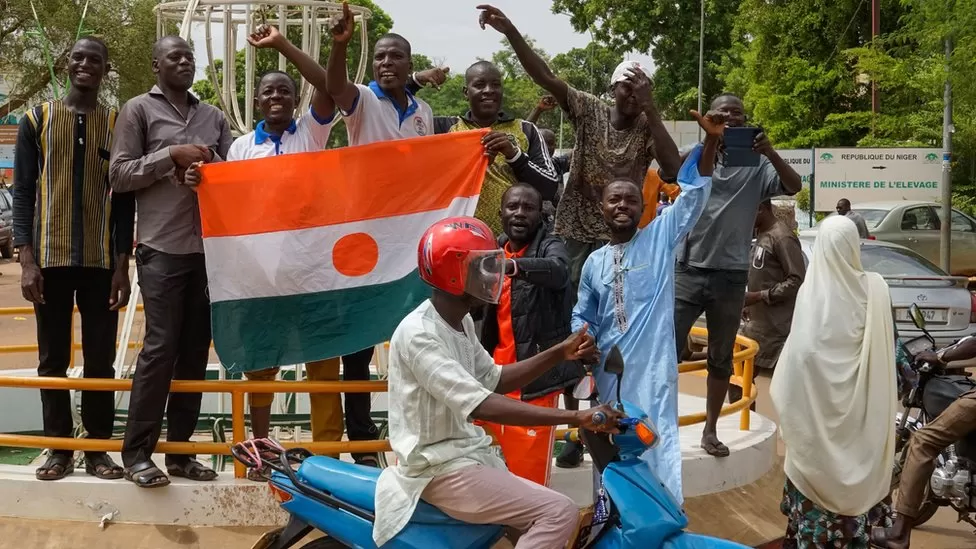Niger coup: France to blame for instability in West Africa

A former French colony, Niger is the latest country in West Africa to be seized by the army. It follows Burkina Faso, Guinea, Mali, and Chad. It is striking that 78% of the 27 coups in sub-Saharan Africa have taken place in Francophone countries since 1990, leading some commentators to ask whether France – or the legacy of French colonialism – is responsible.
There is no doubt that many coup plotters would like us to believe that. A scathing attack on France was launched by Colonel Abdoulaye Maiga after he was appointed prime minister by the Mali military junta in September 2022.
Mr Maiga alleged that France had “disowned universal moral values” and “stabbed Mali in the back” with its “neocolonialist, condescending, paternalist and vengeful policies”.
The Burkina Faso military government ended a long-standing agreement that allowed French troops to operate in the country in February, giving France one month to remove them.
In neighboring Niger, President Mohamed Bazoum’s removal from power was legitimised by accusations that he was a puppet of French interests, and five military deals with France have since been revoked by the junta led by Gen Abdourahmane Tchiani. In response to the coup, the French embassy was attacked and popular protests were held.
There is some support for these grievances in the historical record. To retain control, French colonial rule established repressive political systems to extract valuable resources.
While British colonial rule continued to play a role in Africa, what was distinctive about France’s role was the extent to which it continued to meddle in the politics and economics of its former territories.
CFA francs continue to be used by seven out of nine Francophone states in West Africa, a legacy of French economic policy towards its colonies. They are pegged to the euro and guaranteed by France.
As part of its defence agreements, France regularly intervened militarily on behalf of pro-French leaders who were unpopular.
In most cases, this strengthened corrupt and abusive figures such as former Chad President Idriss Déby and former Burkinabe President Blaise Compaoré, posing additional challenges to democracy.
In spite of the fact that France did not intervene militarily to reinstate any of the recently deposed heads of state, they were all viewed as being “pro-French”.
Furthermore, French political leaders and their African allies often had corrupt relationships, creating a wealthy and powerful elite at the expense of Africans.
As a result of “the secret crime in the upper echelons of French politics and economy”, François-Xavier Verschave coined the term Françafrique to refer to a neocolonial relationship. He claimed that large sums of money were misappropriated as a result of these ties.
While recent French governments have sought to distance themselves from Françafrique, there are constant reminders of the problematic relationship between France, French businesses, and Africa, including some embarrassing corruption cases.
In this light, it is easy to understand why a Nigerien told that “I have opposed France since childhood … They have exploited all the resources of my country, including uranium.”
While France’s allies in Africa were strong and France’s military support helped maintain stability, scandals such as these were often swept under the rug.
The ability of France and other Western states to maintain order has deteriorated in recent years, making them increasingly vulnerable to criticism.
It has proven impossible for West African governments to regain control of their territories despite tremendous funding and troops provided by the French-led international response to the Sahel insurgency.
Since Burkina Faso and Mali were unable to protect their own citizens, French support appeared more like a liability than a blessing to civilian leaders.
Consequently, military leaders believed citizens would celebrate a coup as a result of growing popular anger and frustration.
However, despite the mistakes France has made in dealing with its former colonies in Africa over the years, the instability Francophone countries are currently experiencing cannot be solely blamed on France.
In the past few decades, it has hardly been the only former colonial power to back authoritarian leaders abroad.
